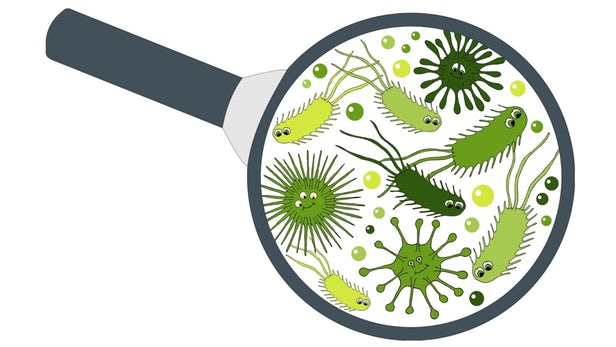
Breaking News
 Why men stopped going to church
Why men stopped going to church
 Nullify the Police State: The People's Veto to Rein in a Lawless Government
Nullify the Police State: The People's Veto to Rein in a Lawless Government
 Former Top CDC Officials Hired by California to Invalidate CDC's New Public Health Policies
Former Top CDC Officials Hired by California to Invalidate CDC's New Public Health Policies
 James O'Keefe Reveals Shocking Details of Army of Anti-ICE Agitators...
James O'Keefe Reveals Shocking Details of Army of Anti-ICE Agitators...
Top Tech News
 Researchers who discovered the master switch that prevents the human immune system...
Researchers who discovered the master switch that prevents the human immune system...
 The day of the tactical laser weapon arrives
The day of the tactical laser weapon arrives
 'ELITE': The Palantir App ICE Uses to Find Neighborhoods to Raid
'ELITE': The Palantir App ICE Uses to Find Neighborhoods to Raid
 Solar Just Took a Huge Leap Forward!- CallSun 215 Anti Shade Panel
Solar Just Took a Huge Leap Forward!- CallSun 215 Anti Shade Panel
 XAI Grok 4.20 and OpenAI GPT 5.2 Are Solving Significant Previously Unsolved Math Proofs
XAI Grok 4.20 and OpenAI GPT 5.2 Are Solving Significant Previously Unsolved Math Proofs
 Watch: World's fastest drone hits 408 mph to reclaim speed record
Watch: World's fastest drone hits 408 mph to reclaim speed record
 Ukrainian robot soldier holds off Russian forces by itself in six-week battle
Ukrainian robot soldier holds off Russian forces by itself in six-week battle
 NASA announces strongest evidence yet for ancient life on Mars
NASA announces strongest evidence yet for ancient life on Mars
 Caltech has successfully demonstrated wireless energy transfer...
Caltech has successfully demonstrated wireless energy transfer...
 The TZLA Plasma Files: The Secret Health Sovereignty Tech That Uncle Trump And The CIA Tried To Bury
The TZLA Plasma Files: The Secret Health Sovereignty Tech That Uncle Trump And The CIA Tried To Bury
How long does it take for your gut bacteria to recover after antibiotics?

A new study has closely examined the regrowth in gut bacteria after major antibiotic interventions, revealing that while much of our microbiome does recover, some species could be permanently eradicated.
The research focused on 12 healthy male subjects, each of who was initially subjected to a four-day treatment comprising three strong antibiotics designed to almost completely eliminate most bacterial species living in their gut. The participants were then monitored for six months to analyze how the microbial flora in their gut recovered.
The initial results were somewhat positive, with most bacterial species reappearing after around one and half months, but not everything returned to normal. At the six-month point the researchers discovered that nine common species of bacteria had still not reappeared in most of the subjects. No conclusions have been made by the researchers to link the missing gut bacteria to specific health effects, but Oluf Pedersen, lead on the study, does suggest recurrent antibiotic use may confer permanent gut bacteria alterations over a person's lifetime.



